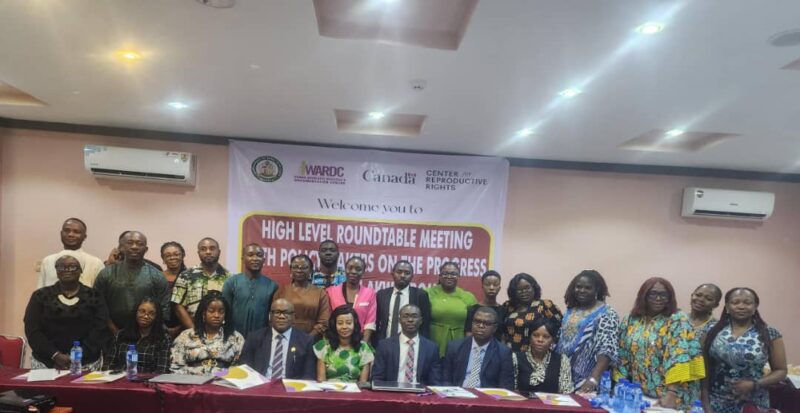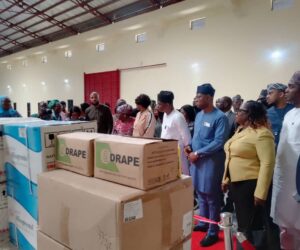By Isaiah Eka
Stakeholders in Akwa Ibom have pledged commitment to the Safe Termination of Pregnancy (STOP) guidelines to help reduce high rates of maternal mortality in the state.
The stakeholders made the commitment at a roundtable with policymakers on the progress of Sexual Reproductive Health Rights (SRHR) on Thursday in Uyo.
The meeting was organised by the Women Advocate Research and Documentation Centre (WARDC) in partnership with the Ministry of Women Affairs, with support from the Centre for Reproductive Rights and sponsored by Global Affairs Canada.
The News Agency of Nigeria (NAN) reports that STOP guidelines are a set of medical protocols that guide healthcare professionals on safe and legal abortion in Nigeria.
Akwa Ibom is one of the states in Nigeria to adopt and domesticate the guidelines.
Dr Mathias Abah, the state coordinator of the Society of Gynaecologists and Obstetricians in Nigeria (SOGON), said that the STOP guidelines aligned with international best practices and that it was a rights-based approach to sexual reproductive health.
Abah explained that the guidelines offered legal support for the termination of pregnancies which posed a risk to the mother’s health, but not for social reasons, providing clarity for women and medical doctors.
He, however, expressed displeasure at the low level of awareness of the guidelines among healthcare workers in the state.
Abah said that SOGON was working closely with the Ministry of Health to enhance dissemination and publicity of the guidelines.
“SOGON has engaged in discussions with the ministry, and efforts are underway to publicize the guidelines widely.
“Currently, they are working to ensure that not only medical practitioners but also healthcare providers are aware of the STOP guidelines.
“It is essential to emphasise that termination of pregnancy is only permitted for health reasons, not social reasons, as stipulated by the abortion law,” he said.
Also, Dr Bless Atat, a Consultant Obstetrician and Gynaecologist at the University of Uyo Teaching Hospital (UUTH), emphasised that implementing the STOP guidelines could significantly reduce the high Maternal Mortality Rate (MMR) in the state.
Atat said that efforts to disseminate the guidelines across the state was underway.
“In collaboration with our partners, such as the Ministry of Health, we are working together to disseminate the guidelines and provide information on its proper implementation,” he said.
Similarly, Ms Emmanuella Azu, Programme Officer of WARDC, said that her organisation was in Akwa Ibom to implement a project focused on sexual and reproductive health rights, with specific emphasis on the STOP guidelines.
Azu expressed satisfaction with stakeholders’ commitment to disseminating the guidelines.
She advocated for a review of the existing guidelines to include social reasons for safe termination of pregnancy.
“The review will bridge the gap for women who are pregnant as a result of rape, gang rape or women who are pregnant as a result of incest.
“All of these categories of women are not covered in the current STOP guidelines,” she said. (NAN) (www.nannews.ng)
Edited by Victor Adeoti/Ayodeji Alabi








